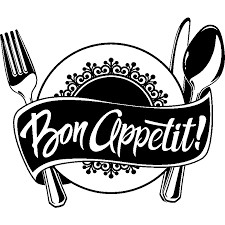Debunking the Dining Myth
A recent discussion raised the question: Is “Bon appétit” no longer a famous toast to begin a meal? This rumor, reportedly fueled by a past New York Times article, suggests that the phrase has fallen out of vogue. But is there any truth to this claim?
Understanding “Bon Appétit”
The phrase “Bon appétit,” which translates to “good appetite,” is traditionally offered at the beginning of a meal to wish everyone an enjoyable dining experience. It’s a toast recognized worldwide, often associated with a touch of elegance and class. So, why would anyone shy away from wishing their guests a hearty appetite? Perhaps it’s a lack of understanding or history.
A Nod to Tradition
While language and customs evolve with time and generations, certain traditions hold firm. “Bon appétit” is more than just a phrase; it’s a cultural connection, especially in American dining, where figures like Julia Child have popularized it since the 1960s. Julia Child’s introduction of French cuisine and dining terms to the American public helped solidify “Bon appétit” as part of our dining tradition.
Keeping the Tradition Alive
Despite changes in trends and terminology, many Americans continue to embrace “Bon appétit” to begin a meal, ensuring continuity and a connection to the past. It’s a moment where everyone raises their glasses, the host offers a warm “Bon appétit,” and the meal begins—a simple yet elegant tradition. Only the host should initiate this protocol! Typically, the host also ensures everyone has arrived and that it is time to begin the meal.
What’s Your Take?
Do you still use “Bon appétit” to start a meal, or have you noticed a shift in your dining circles? Share your thoughts or experiences—whether to keep this tradition alive or if it’s time for a change.
Please share your opinion or experience.



